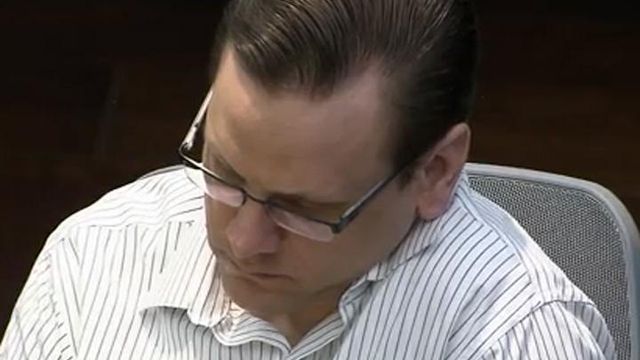Lone juror's vote forces mistrial for Raven Abaroa
A Superior Court judge in Durham declared a mistrial Friday after an 11-1 deadlocked jury failed to reach a unanimous guilty verdict in the first-degree murder trial of Raven Abaroa.
Posted — UpdatedAbaroa, 33, is accused of fatally stabbing his 25-year-old wife, Janet Abaroa, three times in their Durham home on April 26, 2005.
Jurors deliberated for more than 10 hours since closing arguments Wednesday and told Judge Orlando Hudson twice Friday that they were deadlocked 11-1 in favor of guilt and "that no amount of deliberation will alter our decision."
Abaroa remained in the Durham County jail without bond Friday afternoon, and Durham County District Attorney Charlene Coggins-Franks said the state intends to retry the case. A new date could be set Thursday.
Abaroa has maintained his innocence, saying he was playing in a soccer game and returned home to find his wife crouched on the floor. He was arrested nearly five years later in Idaho, where he lived with the couple's son, who was 6 months old when his mother was killed.
Testimony in the five-week trial spanned 19 days and consisted of 82 witnesses and 565 pieces of evidence.
Jurors appeared visibly tired and upset as did Janet Abaroa's family members who said prior to Hudson's ruling that they were terrified at the thought of a hung jury.
Many in the courtroom, including the defendant, were in tears as the judge ruled.
Family members of both Raven and Janet Abaroa declined to comment as did prosecutors. Defense attorney Amos Tyndall said he was glad his client was not convicted.
The defense argued during the trial that police focused only on their client as a suspect and ignored or explained away any evidence that could have helped identify another culprit in the case
In closing statements on Wednesday, Tyndall also said that the discovery two weeks ago of emails on a hard drive from Janet Abaroa's work computer was symbolic of the state's "willingness to capitalize on information we don't have."
"It allowed the state, frankly, to present a dishonest picture of who Janet Abaroa was, who Raven Abaroa is and what their relationship was like," he told jurors.
The emails, Tyndall argued, showed Janet Abaroa as a strong-willed woman who trusted her husband and could do what she wanted – an image that starkly differed from the prosecution's portrayal of a broken and submissive wife who feared her controlling, verbally abusive and unfaithful husband.
Prosecutors argued Janet Abaroa's death wasn't random and that Raven Abaroa was the only person with any reason to kill her.
An admitted affair and other sexual encounters were evidence that he didn't want to be married, they said. A negative bank account balance in April 2005, combined with pending embezzlement charges and a lifestyle beyond his means, pointed to a financial motive.
Janet Abaroa had a $500,000 life insurance policy, prosecutor Luke Bumm told jurors, so her death "was worth a great deal of money" to her husband and could solve his financial problems.
Although there was no physical evidence connecting Raven Abaroa to his wife's murder, Coggins-Franks told jurors there were too many circumstances that kept leading investigators back to him.
"If you take just one by itself, it doesn't indicate guilt," she said. "But if you take one after the next after the next after the next – by the time you're through counting, there's so much there that the state has proved well beyond a reasonable doubt that the defendant murdered his wife, Janet Abaroa, on April 26, 2005."
• Credits
Copyright 2024 by Capitol Broadcasting Company. All rights reserved. This material may not be published, broadcast, rewritten or redistributed.






